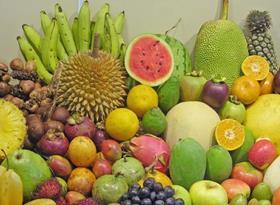
Indonesian agribusiness officials have blamed low quality produce, unsustainable supplies and an absence of support from the government as the reasons behind the country’s poor performance as a fruit exporter.
Indonesia currently lags far behind its neighbours, Thailand and Vietnam, despite efforts to penetrate the global market.
In 2012, Indonesia exported 225,260 tonnes of fruit valued at US$234.2m. This comprised approximately 1 per cent of the country’s total fruit production for that year of 20.26m tonnes. By comparison, Thailand sells more than 1m tonnes annually, making it one of the world’s leading exporters.
That same year, Indonesia imported 834,463 tonnes of fruit valued at US$887.94m. This makes an overall trade deficit of 609,203 tonnes of produce, worth $653.75m.
Yasid Taufik, acting director general for agriculture produce processing and marketing at the Indonesian Agriculture Ministry, said that his country’s produce was often considered substandard by importing countries that applied non-tariff barriers and that the poor quality had been an obstacle for the Indonesian horticulture industry.
“We hope to generate better incentives with the issuance of import product regulations, which could lead to a higher demand and prices for local commodities,” Taufik told The Jakarta Post.
The government issued a regulation last year that limited imports of 13 horticultural products, including durian, pineapple, honeydew, bananas, mangos and papayas, effective from January 2013 until June 2013.
Local industry experts have stated that a greater government role in producing and distributing fruits would aid farmers and lead to inceased, better quality production.
Hasanuddin Ibrahim, the Agriculture Ministry’s horticulture director general, announced the allocation of IDR800m US$82,372) for 2013 to develop the country’s horticulture products. He said the government wanted more private sector investment to improve the quality and quantity of fruit commodities.



